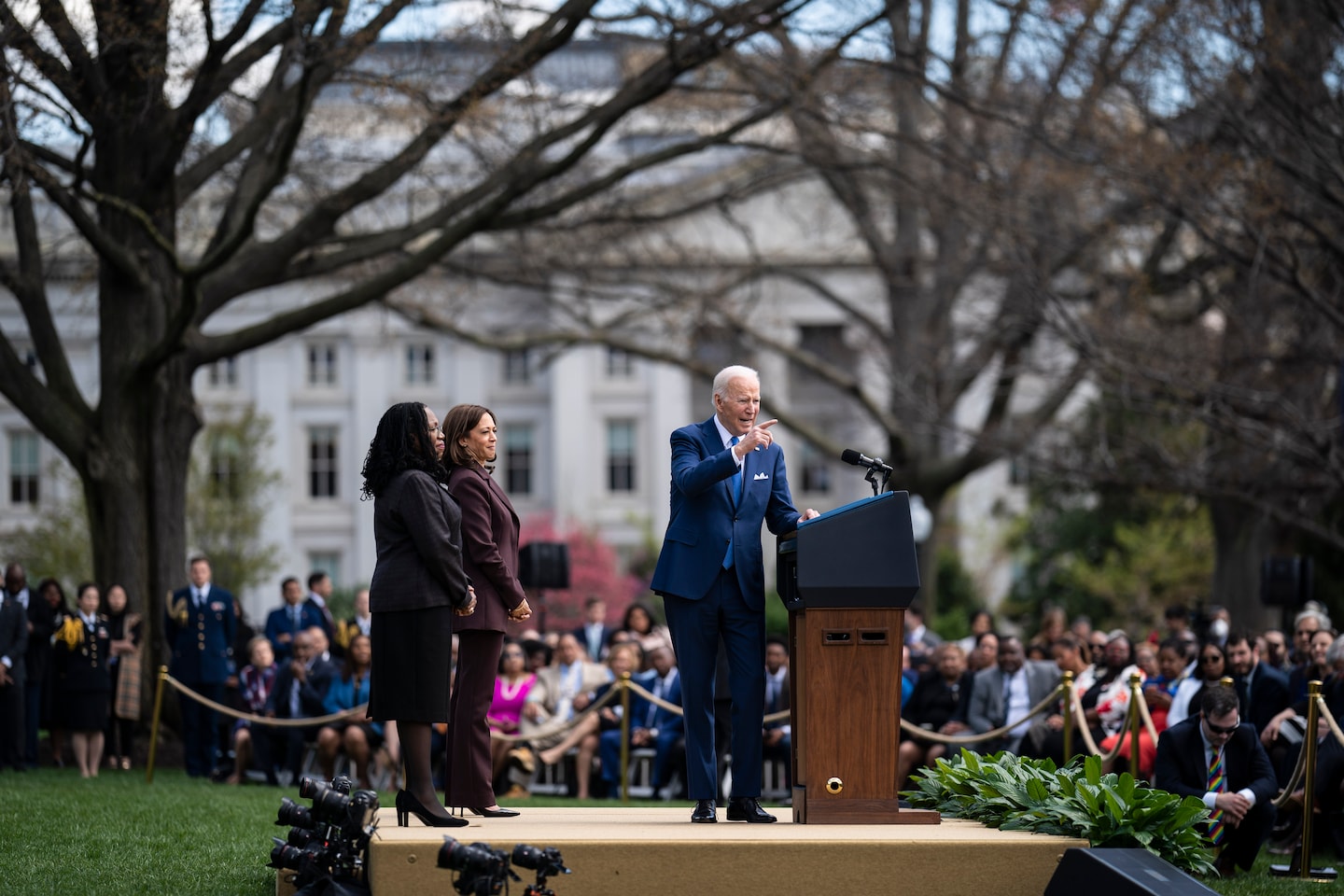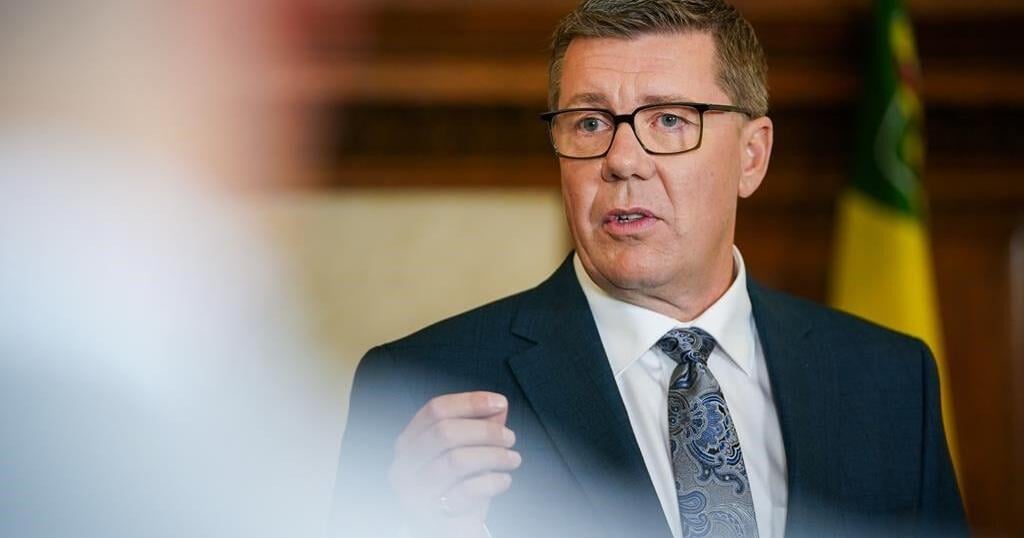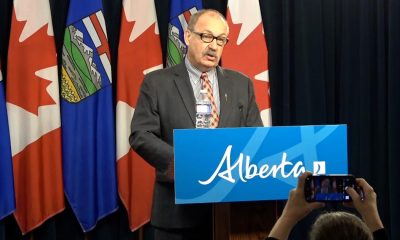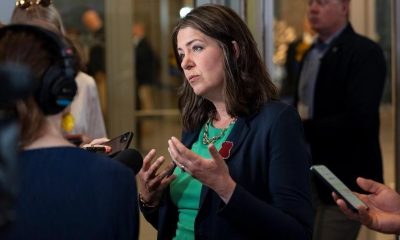Jason Willick’s April 12 Tuesday Opinion column, “This high court battle was a GOP self-defeat,” misstated the historic nature of the Supreme Court’s current composition. He raised well-founded concerns regarding politicizing the Supreme Court but erroneously claimed we now have “the first solidly conservative Supreme Court majority in generations.” Republican-appointed justices have made up the majority of the court for the past two generations, since 1970 specifically.
Politics
Opinion | Forecasting court decisions on appointment politics is folly

In 1991, the Supreme Court had only one justice appointed by a Democratic president. In 1994 and 2009, it had two and then three, respectively. So, this past generation, the Republican-appointed majority has actually been decreasing, not increasing.
Though some current justices do seem more conservative jurisprudentially than their predecessors, “the path of law” is not always clear. The same 6-to-3 ratio of Republican- to Democratic-appointed justices of today established the one case Mr. Willick raised, Roe v. Wade. All but one Republican-appointed justice voted with Roe’s 7-to-2 majority in an opinion by Justice Harry Blackmun, a Republican appointee.
This demonstrates at least the historical folly of forecasting a “solidly conservative” Supreme Court’s rulings based merely on the political parties of the appointing presidents. Though admittedly it seems less likely with the present generation, such solids can evaporate.
Steven D. Reske, Minnetonka, Minn.
Politics
Moe visiting Yorkton as Saskatchewan election campaign continues

Saskatchewan Party Leader Scott Moe is set to be on the road today as the provincial election campaign continues.
Moe is set to speak in the city of Yorkton about affordability measures this morning before travelling to the nearby village of Theodore for an event with the local Saskatchewan Party candidate.
NDP Leader Carla Beck doesn’t have any events scheduled, though several party candidates are to hold press conferences.
On Thursday, Moe promised a directive banning “biological boys” from using school changing rooms with “biological girls” if re-elected.
The NDP said the Saskatchewan Party was punching down on vulnerable children.
Election day is Oct. 28.
This report by The Canadian Press was first published Oct. 18, 2024.
The Canadian Press. All rights reserved.
Politics
Saskatchewan Party’s Moe pledges change room ban in schools; Beck calls it desperate

REGINA – Saskatchewan Party Leader Scott Moe is promising a directive banning “biological boys” from using school changing rooms with “biological girls” if re-elected, a move the NDP’s Carla Beck says weaponizes vulnerable kids.
Moe made the pledge Thursday at a campaign stop in Regina. He said it was in response to a complaint that two biological males had changed for gym class with girls at a school in southeast Saskatchewan.
He said the ban would be his first order of business if he’s voted again as premier on Oct. 28.
It was not previously included in his party’s campaign platform document.
“I’ll be very clear, there will be a directive that would come from the minister of education that would say that biological boys will not be in the change room with biological girls,” Moe said.
He added school divisions should already have change room policies, but a provincial directive would ensure all have the rule in place.
Asked about the rights of gender-diverse youth, Moe said other children also have rights.
“What about the rights of all the other girls that are changing in that very change room? They have rights as well,” he said, followed by cheers and claps.
The complaint was made at a school with the Prairie Valley School Division. The division said in a statement it doesn’t comment on specific situations that could jeopardize student privacy and safety.
“We believe all students should have the opportunity to learn and grow in a safe and welcoming learning environment,” it said.
“Our policies and procedures align with the Canadian Charter of Rights and Freedoms, the Canadian Human Rights Act and the Saskatchewan Human Rights Code.”
Asked about Moe’s proposal, Beck said it would make vulnerable kids more vulnerable.
Moe is desperate to stoke fear and division after having a bad night during Wednesday’s televised leaders’ debate, she said.
“Saskatchewan people, when we’re at our best, are people that come together and deliver results, not divisive, ugly politics like we’ve seen time and again from Scott Moe and the Sask. Party,” Beck said.
“If you see leaders holding so much power choosing to punch down on vulnerable kids, that tells you everything you need to know about them.”
Beck said voters have more pressing education issues on their minds, including the need for smaller classrooms, more teaching staff and increased supports for students.
People also want better health care and to be able to afford gas and groceries, she added.
“We don’t have to agree to understand Saskatchewan people deserve better,” Beck said.
The Saskatchewan Party government passed legislation last year that requires parents consent to children under 16 using different names or pronouns at school.
The law has faced backlash from some LGBTQ+ advocates, who argue it violates Charter rights and could cause teachers to out or misgender children.
Beck has said if elected her party would repeal that legislation.
Heather Kuttai, a former commissioner with the Saskatchewan Human Rights Commission who resigned last year in protest of the law, said Moe is trying to sway right-wing voters.
She said a change room directive would put more pressure on teachers who already don’t have enough educational support.
“It sounds like desperation to me,” she said.
“It sounds like Scott Moe is nervous about the election and is turning to homophobic and transphobic rhetoric to appeal to far-right voters.
“It’s divisive politics, which is a shame.”
She said she worries about the future of gender-affirming care in a province that once led in human rights.
“We’re the kind of people who dig each other out of snowbanks and not spew hatred about each other,” she said. “At least that’s what I want to still believe.”
Also Thursday, two former Saskatchewan Party government members announced they’re endorsing Beck — Mark Docherty, who retired last year and was a Speaker, and Glen Hart, who retired in 2020.
Ian Hanna, a speech writer and senior political adviser to former Saskatchewan Party premier Brad Wall, also endorsed Beck.
Earlier in the campaign, Beck received support from former Speaker Randy Weekes, who quit the Saskatchewan Party earlier this year after accusing caucus members of bullying.
This report by The Canadian Press was first published Oct. 17, 2024.
— With files from Aaron Sousa in Edmonton
Politics
Promise tracker: What the Saskatchewan Party and NDP pledge to do if they win Oct. 28

REGINA – Saskatchewan‘s provincial election is on Oct. 28. Here’s a look at some of the campaign promises made by the two major parties:
Saskatchewan Party
— Continue withholding federal carbon levy payments to Ottawa on natural gas until the end of 2025.
— Reduce personal income tax rates over four years; a family of four would save $3,400.
— Double the Active Families Benefit to $300 per child per year and the benefit for children with disabilities to $400 a year.
— Direct all school divisions to ban “biological boys” from girls’ change rooms in schools.
— Increase the First-Time Homebuyers Tax Credit to $15,000 from $10,000.
— Reintroduce the Home Renovation Tax Credit, allowing homeowners to claim up to $4,000 in renovation costs on their income taxes; seniors could claim up to $5,000.
— Extend coverage for insulin pumps and diabetes supplies to seniors and young adults
— Provide a 50 per cent refundable tax credit — up to $10,000 — to help cover the cost of a first fertility treatment.
— Hire 100 new municipal officers and 70 more officers with the Saskatchewan Marshals Service.
— Amend legislation to provide police with more authority to address intoxication, vandalism and disturbances on public property.
— Platform cost of $1.2 billion, with deficits in the first three years and a small surplus in 2027.
—
NDP
— Pause the 15-cent-a-litre gas tax for six months, saving an average family about $350.
— Remove the provincial sales tax from children’s clothes and ready-to-eat grocery items like rotisserie chickens and granola bars.
— Pass legislation to limit how often and how much landlords can raise rent.
— Repeal the law that requires parental consent when children under 16 want to change their names or pronouns at school.
— Launch a provincewide school nutrition program.
— Build more schools and reduce classroom sizes.
— Hire 800 front-line health-care workers in areas most in need.
— Launch an accountability commission to investigate cost overruns for government projects.
— Scrap the marshals service.
— Hire 100 Mounties and expand detox services.
— Platform cost of $3.5 billion, with small deficits in the first three years and a small surplus in the fourth year.
—
This report by The Canadian Press was first published Oct .17, 2024.
The Canadian Press. All rights reserved.
-

 Politics21 hours ago
Politics21 hours agoBad weather forecast for B.C. election day as record numbers vote in advance polls
-

 Business21 hours ago
Business21 hours agoNetflix’s subscriber growth slows as gains from password-sharing crackdown subside
-
News24 hours ago
Champlain CBP Officers Recover Stolen Vehicle
-

 News15 hours ago
News15 hours agoTobacco giants would pay out $32.5B to provinces, smokers in ‘historic’ proposed deal
-

 Politics21 hours ago
Politics21 hours agoPromise tracker: What the Saskatchewan Party and NDP pledge to do if they win Oct. 28
-

 News22 hours ago
News22 hours agoToronto FC promises change at the club after missing out on the playoffs yet again
-

 News15 hours ago
News15 hours agoHere are the key numbers in the deal proposed by three tobacco giants
-
Business22 hours ago
CB Series – Front Office Pro Series Trade Floor Business Analysis


























